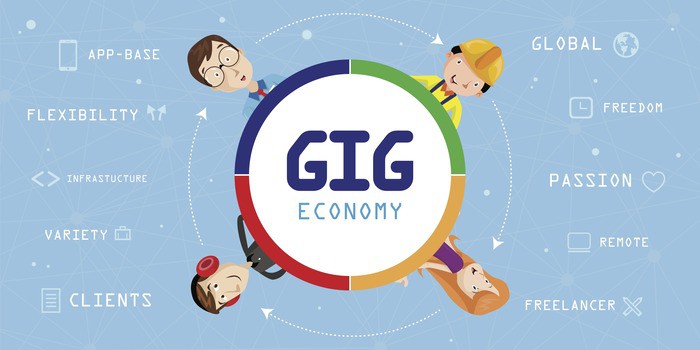
The gig economy is thriving in Fairfax. On any given day, thousands of rideshare drivers transport passengers, couriers deliver food orders, and freelancers work from home in the region. While flexible, gig work also comes with drawbacks.
Misclassification as independent contractors and lack of benefits like insurance, overtime pay, and minimum wage leaves workers vulnerable to exploitation. Understanding the legal landscape is essential as the gig economy grows.
A qualified criminal attorney can be an invaluable ally, explaining rights under the law and vigorously advocating for those whose protections are denied. This guide outlines risks for gig workers and available safeguards.
The Lure and Peril of Gig Work
The gig economy offers the allure of independence and untethered income. Rideshare driving, food delivery, and freelance services allow Fairfax residents to earn extra cash with scheduling flexibility. However, this freedom often comes at a cost. Gig companies frequently misclassify workers as independent contractors rather than employees.
This distinction critically impacts access to rights like minimum wage, overtime pay, insurance, and expense reimbursement. Without these protections, gig workers shoulder all the risk while companies reap the rewards of their labor.
Additionally, contractors lack access to unemployment assistance if deactivated from an app. While the flexibility of gig work is appealing, the lack of safeguards leaves workers financially vulnerable. Understanding this precarious balance of freedom and insecurity is essential for anyone entering the gig economy.
Misclassified? Understanding Your Status
Under Virginia law, correctly categorizing workers as employees or independent contractors significantly impacts their rights. Employees are entitled to protections like minimum wage, overtime, expenses, and insurance reimbursement.
Contractors are considered self-employed business owners not eligible for these safeguards. Indicators of misclassification include working regular schedules set by the company, using company equipment, lacking control over job tasks, and being subject to behavioral oversight.
Misclassification hurts workers by denying them access to critical labor protections. It also poses risks for companies, as regulators can levy penalties for violations. Workers should be vigilant for signs they are misclassified, as correcting the discrepancy is essential to upholding their rights.
However, with the complexity of employment categories, expert guidance from an attorney may be needed to resolve misclassification issues.
Benefits Gap: A Major Vulnerability
Beyond misclassification issues, gig workers also face a benefits gap that leaves them financially exposed. Most lack access to employer-sponsored health insurance, paid time off, sick leave, and unemployment assistance.
This forces gig workers to independently shoulder the costs of healthcare, take on financial risk if unable to work due to illness or market fluctuations, and find their own retirement savings solutions.
Juggling the demands of gig work without a safety net creates immense stress and uncertainty for many contractors and their families. Some gig companies are responding with benefit stipends, insurance marketplaces, and income smoothing options, but most workers remain without a stable support system.
As gig work evolves, strengthening benefit protections will be crucial to prevent exploitation and burnout of this growing workforce.
How a Fairfax Criminal Attorney Can Help
As gig companies push the boundaries of traditional employment, legal advocacy is essential to protect contractor rights. A Fairfax criminal attorney can evaluate your situation to determine if misclassification or denial of benefits constitutes unlawful exploitation.
They will gather evidence, document violations, and aggressively push for proper worker classification on your behalf.
Seeking Owed Compensation
If misclassified, criminal attorneys can fight for access to overtime pay, expense reimbursement, and other compensation owed to you as an employee. Calculations of back pay and benefits due can result in substantial claims. They will tenaciously negotiate with companies to obtain rightful compensation.
Pursuing Financial Remedies
In cases of deliberate or negligent misclassification, they can pursue financial remedies through regulatory complaints or civil lawsuits. Monetary damages can be awarded to compensate for lost wages and benefits.
For contractors facing serious exploitation, justice may be found through legal action. With an attorney as your advocate, companies who profit by denying worker rights can be held accountable.
The Bottom Line
While the allure of flexible work is undeniable, the pitfalls, such as misclassification and benefits gaps, are equally significant. A Fairfax criminal attorney becomes a crucial ally, fighting for the rights of gig workers denied legal protections.
As this evolving landscape unfolds, it’s clear that legal advocacy is not just a luxury but a necessity to uphold the well-being and rights of those contributing to the thriving gig economy in Fairfax.
